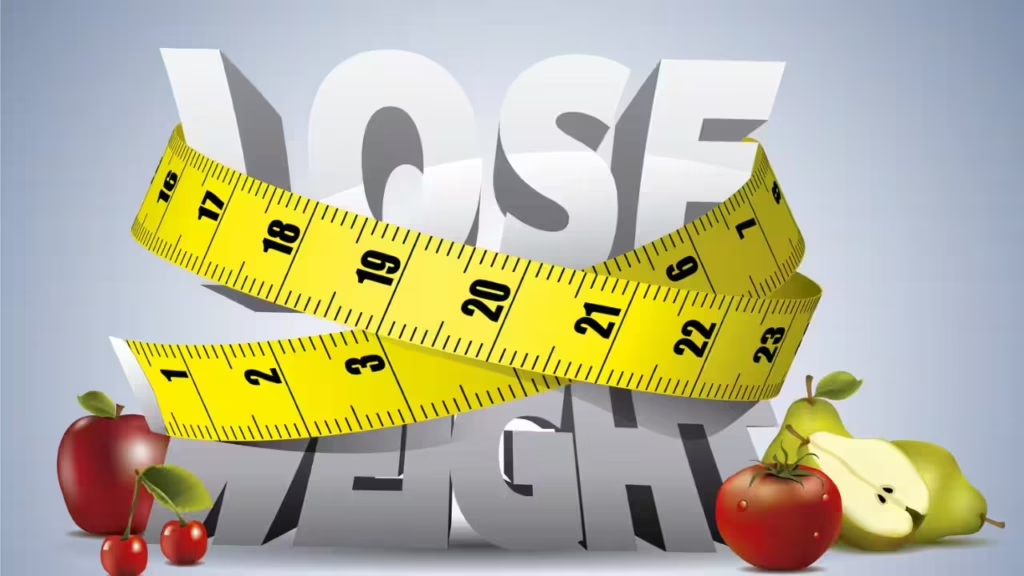Weight loss is one of the most common health goals around the world. Whether you want to drop a few pounds or make a big lifestyle change, it’s easy to feel overwhelmed by all the advice out there. From fad diets to “magic” pills, the weight loss industry is full of quick-fix promises—but the truth is, there are no shortcuts.
Real, lasting weight loss happens when you make simple, healthy changes and stick with them over time. In this article, we’ll break down easy and effective weight loss tips that don’t involve starving yourself or spending hours at the gym. These tips are backed by science, easy to follow, and perfect for anyone looking to improve their health.
Why Weight Loss Matters

Losing weight isn’t just about looking better in photos. It has real health benefits:
- Reduces risk of heart disease, diabetes, and high blood pressure
- Improves mobility and reduces joint pain
- Boosts mood and energy levels
- Supports better sleep
- Lowers inflammation and improves overall quality of life
Even losing 5% to 10% of your body weight can make a big difference in your health.
Start With Small Changes
You don’t need a complete life overhaul to start losing weight. Small, steady changes work best:
- Drink more water instead of soda
- Add one veggie to every meal
- Walk for 10 minutes after dinner
These tiny steps add up and build momentum without making you feel overwhelmed.
Focus on Nutrition Over Restriction
Crash diets might lead to fast weight loss, but they rarely last. Instead, build habits around better food choices:
- Eat whole foods like fruits, veggies, whole grains, and lean proteins
- Avoid ultra-processed foods high in sugar, salt, and unhealthy fats
- Control portion sizes—use smaller plates if needed
- Practice mindful eating by slowing down and avoiding screens at meals
Remember: the goal is to fuel your body, not punish it.
Don’t Skip Meals
Skipping meals might seem like an easy way to cut calories, but it often leads to overeating later. When you get too hungry, you’re more likely to reach for junk food.
Instead:
- Eat three balanced meals a day
- Include healthy snacks like nuts, yogurt, or fruit if you’re hungry between meals
- Keep your blood sugar steady by eating every 4–5 hours
Move Your Body Regularly
Exercise doesn’t have to be intense to help with weight loss. The key is to move more throughout the day:
- Take walks around the block or during lunch breaks
- Try simple home workouts or beginner YouTube routines
- Do activities you enjoy—dancing, swimming, or biking
Aim for at least 150 minutes of moderate physical activity each week. Strength training 2–3 times a week also helps boost metabolism.
Watch Liquid Calories
You might not realize how many calories are in drinks:
- A large soda: 250–300 calories
- A fancy coffee drink: up to 400 calories
- Alcoholic drinks: 150–300+ calories
Choose water, herbal tea, or black coffee most of the time. If you like flavor, try adding lemon or cucumber to your water.
Sleep and Stress Matter Too
Lack of sleep and high stress can lead to weight gain by triggering cravings and lowering willpower.
Tips to manage this:
- Aim for 7–9 hours of sleep each night
- Avoid screens at least 30 minutes before bed
- Practice stress-reducing habits like deep breathing, journaling, or meditation
- Take short breaks during the day to relax your mind
Plan Your Meals and Track Progress
Planning ahead helps you stay on track and avoid last-minute unhealthy choices:
- Make a weekly meal plan
- Prep ingredients or full meals in advance
- Keep healthy snacks nearby
Tracking your food and activity—through a notebook or an app—can help you stay motivated and aware of your habits.
Don’t Rely on the Scale Alone

The number on the scale doesn’t tell the full story. Your body might be getting stronger and healthier even if your weight changes slowly.
Instead of only watching the scale, pay attention to:
- How your clothes fit
- Your energy levels
- Improved sleep and mood
- More endurance and strength
Progress takes many forms—celebrate all of them.
Avoid Common Weight Loss Myths
There are many false claims about weight loss. Let’s bust a few:
- Myth: Carbs make you fat
Truth: Whole carbs like oats, fruits, and veggies are healthy and help you feel full. - Myth: You must do intense workouts daily
Truth: Moderate activity done consistently is more effective long term. - Myth: Fat is bad
Truth: Healthy fats (avocados, nuts, olive oil) support weight loss and health.
Stay Consistent, Not Perfect
You don’t need to be perfect to succeed. Everyone has off days. What matters is getting back on track:
- Don’t beat yourself up over a cheat meal
- Focus on your next choice, not your last one
- Build habits you can maintain for years, not just weeks
Support Makes a Difference
Don’t go it alone. Share your goals with a friend, join a support group, or connect with others online. Having people who cheer you on makes a big difference.
Realistic Weight Loss Goals
A healthy, sustainable rate of weight loss is 1–2 pounds per week. If you lose faster than that, you risk gaining it back later. Patience pays off.
Use SMART goals:
- Specific: Walk 30 minutes daily
- Measurable: Track steps or calories
- Achievable: Start with 2–3 days a week
- Relevant: Focus on your personal goals
- Time-based: Aim for monthly check-ins
Final Thoughts
Effective weight loss isn’t about starving or suffering—it’s about building a healthier lifestyle that fits your life. Start small, be kind to yourself, and stay focused on the bigger picture: feeling better, moving more, and taking care of your body for the long run.
Weight loss is a journey, not a race. The most important step? Just getting started.
Also read – Entrepreneurship USA: How to Start and Succeed in Business






